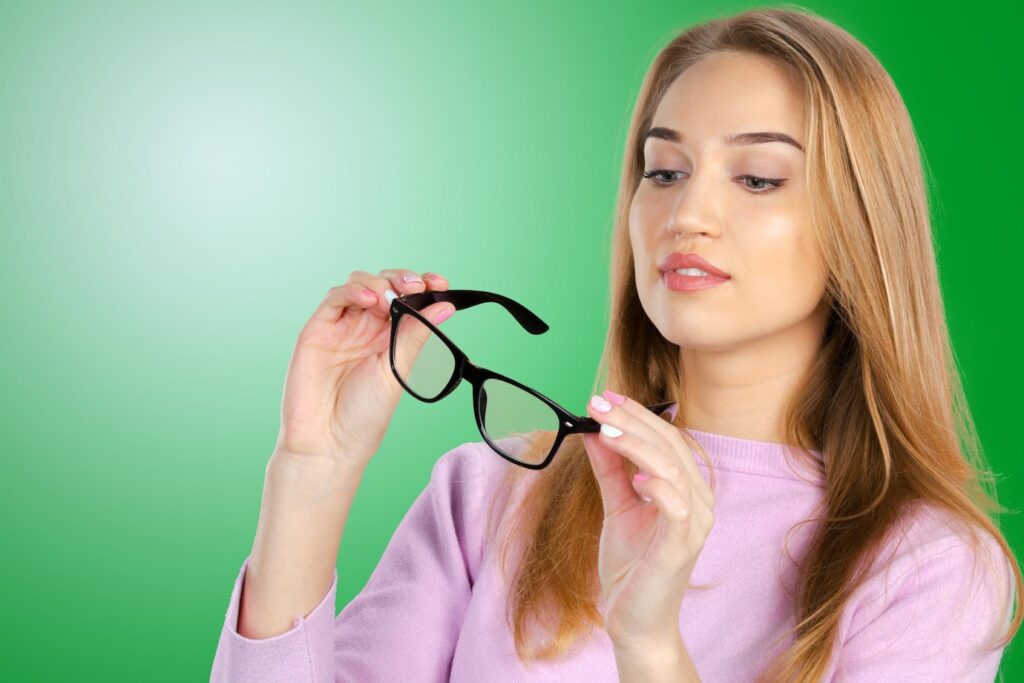Do You Need to Wear Prescription Glasses If You Have Perfect Eyesight?
If you have presbyopia, a refractive error common to people who are aging, reading glasses can be of great help to you. You can purchase reading glasses with or without an eye prescription, and they function by magnifying your near vision so that you are able to read and examine items close to your face more easily.
We asked our eye care team if wearing reading glasses is harmful when you have perfect vision, however. Here’s what they had to say.
Is it bad to wear prescription glasses when you have perfect vision?
Reading glasses are worn for many reasons, including making it easier to see up close. The most common purpose is to alleviate the strain on the eyes associated with prolonged close-up work.
There is a general belief that strained eyes that have near vision are indicative of farsightedness; however, the same symptoms can be experienced by simply observing something up close for a long period of time. For this reason, reading glasses may prove to be helpful.
Wearing reading glasses isn’t harmful to your eyes if you have perfect vision, so you shouldn’t be concerned about it. However, if you’re not used to the magnification level, you may take some time to adjust.
When performing near vision tasks, it is recommended that you wear reading glasses. However, you may find that you would benefit from another style of glasses after having an eye exam with a qualified Independent Doctor of Optometry.
To determine if a prescription would be beneficial to your eyes, our optometrists may run several vision tests. Therefore, it is important that you schedule an eye exam before purchasing reading glasses or any other form of eyewear if you experience any eye irritation, other than the occasional strain caused by staring at a screen for too long.
Does wearing glasses worsen your eyesight?
You should not experience any worsening of your vision if you wear glasses–even if you possess 20/20 vision. Glasses are worn for numerous reasons, including to correct the way the eyes perceive light and visuals. Even if you have a refractive error, it does not necessarily mean you will need corrective eyewear, and needing glasses does not necessarily indicate poor vision.
If your eyes feel fine and your vision is adequate without glasses, you may not need them. However, if you get the correct prescription for your glasses, glasses can help improve your vision while they are worn. As soon as you remove them, any vision loss symptoms you previously experienced may return.
Summary: Are prescription glasses safe for those with good eyesight?
It is worthwhile to wear reading glasses if you have presbyopia, as they make it easier for you to read at close range. However, if you do not have presbyopia or difficulties seeing up close, is it bad to wear reading glasses?
If you do a lot of near vision tasks, you might want to wear reading glasses to make it a little easier to read text. However, wearing reading glasses should not hurt your eyes, regardless of your level of vision acuity. Please note, however, that if you have never worn magnifying lenses before, you may experience some discomfort until you adjust to them.
Generally, corrective lenses will not damage your eyes. If you plan to purchase reading glasses or any other glasses–prescription or not–you should have a comprehensive eye exam with an optometrist so that you can receive the right prescription for your needs. Your vision may have changed since your last visit. Get your eyes checked before purchasing any other glasses.
















